Potassium humate is a powerful ally in organic gardening and sustainable agriculture, providing improved plant health and soil vigor. This material occurs naturally and is derived from leonardite, which enhances nutrient uptake and improves soil composition and water holding capacity. Let us, therefore, look more into the complex advantages associated with potassium humate, such as increasing crop yields, promoting microbial life function, or even enhancing the overall growth of plants. Possessing this knowledge enables growers and farmers to use potassium humate to develop robust gardens and farms where everything will grow as planned.
What is Potassium Humate?
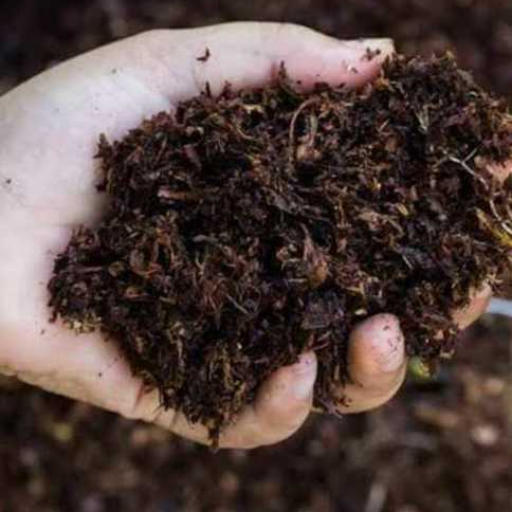
Understanding Potassium Humate
Potassium humate is an organic, concentrated substance formed from the decay of plant and animal matter, generally in leonardite. It acts as a soil conditioner and natural fertilizer and significantly contributes to the availability of essential plant nutrients. This humic substance has a high potassium content, which is necessary for various physiological processes like water regulation, activation of enzymes, photosynthesis, etc. Furthermore, potassium humate assists in modifying soil structure, promoting microbial activity, and increasing soil fertility, making it a must-have in sustainable agricultural practices.
How Potassium Humate Works
Potassium humate operates on several critical processes within the soil and plants, leading to better growth and greater yields. Here are the significant ways through which this happens:
- Nutrient availability: Potassium humates improve the solubility of nutrients within the soil, making it easy for plants to acquire them. Consequently, nitrogen uptake has been shown to greatly enhance solubility and decrease leaching since it binds with nitrogen, phosphorous, or potassium, thus preventing their loss down into groundwater.
- Soil Structure Improvement: Adding potassium humates will granulate soil particles, thus increasing porosity and aerating them. For this reason, enhanced root penetration and water infiltration are attained, which promotes healthier root systems.
- Promotion of Microbial Activities: It is also worth noting that beneficial soil microorganisms find food sources from this compound, stimulating their activities. By doing so, nutrient cycling efficiency, among other things, will increase, thus improving fertility while maintaining the healthiness of plants.
- Moisture Retention: This enables less frequent watering because the organic nature of potassium humates provides an increased moisture-holding capacity, especially during dry periods or where aridity occurs.
- pH Balancing: Potassium humates may be used to adjust soil pH, facilitating better growth conditions for plants. This ensures maximum nutrient availability and optimal pH levels, producing better, more vigorous plants.
Technical Parameters:
- Cation Exchange Capacity (CEC): Potassium humates have a high CEC—it is usually between 100 and 300 meq/100g—and thus help maintain essential nutrients within soil systems well.
- Solubility: It dissolves at different water pH levels, generally around 5-7, ensuring nutrient release under optimum conditions.
- Moisture Retention Capability: Potassium humates can improve the water-holding capacity of soils by up to 30% for sustainable irrigation purposes.
Growers can employ these processes, which involve using potassium humate, to drastically improve their soil health and plant yields, thus aligning with the principles of sustainability in agriculture.
The Origins of Potassium Humate
Potassium humate mostly comes from natural humic substances like lignite or brown coal. These materials undergo a process called humification, whereby organic matter decomposes under high pressure and temperature over millions of years. This process enriches the carbon content, resulting in a complex mixture of humic acids and potassium, which is then extracted and processed for agricultural needs. My studies indicate that this has been employed in various cultures throughout history, showcasing its importance in sustainable farming practices.
Why Choose Potassium Humate as a Fertilizer?
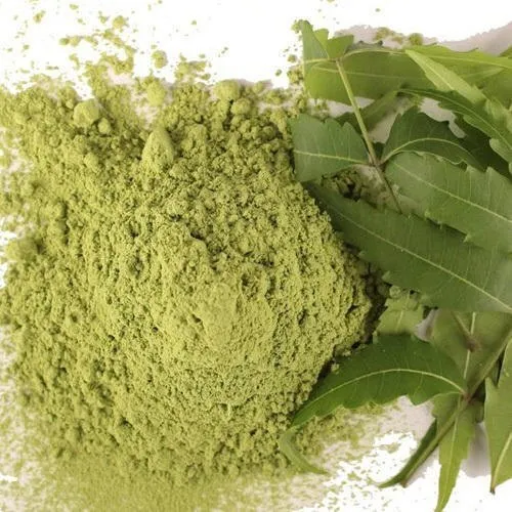
Bursty Text: Benefits of Using Organic Fertilizers
When I select organic fertilizers such as potassium humate, I realize many vital advantages that resonate with my commitment to sustainability. Firstly, these manures develop the soil structure and fertility over time, resulting in a healthier ecosystem for my plants. Compared to synthetic ones, they are slow-release fertilizers that help avoid nutrient leaching and maintain a stable nutrient supply in plants. Furthermore, organic fertilizers stimulate microbial activity in the soil, which not only helps in nutrient uptake but also aids in pest resistance in plants. Finally, using organic fertilizers is consistent with my value system because it promotes environmental health while supporting strong plant growth.
How Potassium Humate Improves Soil Quality
I have discovered that potassium humate improves soil quality significantly through some mechanisms. First, it helps to improve the structure of the soil by increasing the aggregation of particles, leading to better air circulation and water retention, hence creating an optimal root environment for my plants. Second, because it has a high cation-exchange capacity, it holds onto nutrients longer, making them available as needed by plants over time. Also, when I introduce potassium humate into the ground where I am growing my crops, lawns, flowers, or vegetables, this increases good microbial activity, thus improving the soil’s overall condition and enhancing nutrient cycling, among others. These benefits are all designed to enhance the growth of plants and make more sustainable gardening practices possible.
Comparison with Other Fertilizers
From comparing different fertilizers, including potassium humate, one would note that natural effectiveness and sustainability aspects set this type apart from others. For instance, synthetic fertilizers may boost nutrients immediately but cause eventual degradation of soils with low levels of microbial activities after use for an extended period . On the other hand, unlike most other chemicals used for agriculture today, this compound gradually releases its nutrients while integrating smoothly with ecological processes occurring within soils, thereby keeping soil structure and fertility intact. I also noticed that organic fertilizers, such as compost, are not as good at keeping nutrients in the soil as potassium humate because this compound has a higher cation-exchange capacity; hence, nutrients can be available for a more extended period. Thus, I have learned from my own experience that potassium humate represents a balanced approach toward plant healthiness while being focused on soil sustainability.
What are the Specifications of Potassium Humate?
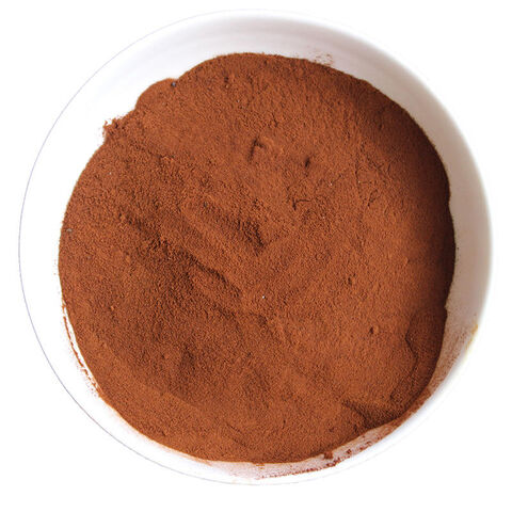
Vital Additives in Potassium Humate
Potassium humate primarily comes from lignite or leonardite and is rich in many organic substances. Some of the main ingredients are:
- Humic acids comprise the essential part of potassium humate, which contributes to improving soil structure and nutrient uptake. They also help to combine minerals with small compounds that allow plants to take them quickly.
- Fulvic Acids: These lower molecular weight acids play a significant role in transporting nutrients across cell membranes in plants and aiding mineral chelation (enhancing their bioavailability).
- Potassium: Potassium is an essential plant nutrient for different physiological activities, like water regulation, enzyme activation processes, and photosynthesis, among others. It usually contains 10-15% potassium by weight, enhancing overall plant wellbeing.
- Trace Elements: For instance, iron, magnesium, and zinc, which are very important elements for plant growth, may be contained in potassium humate. The quantity of these elements varies depending on where their humates are sourced from.
Technical Specifications
- Cation Exchange Capacity (CEC): A typical CEC for potassium humate can range from 200 to 400 meq/100g, which shows its capability to retain and provide the required nutrients to the plants effectively.
- Moisture Content: Generally, potassium humate products have moisture levels of around 10-15%, which affects how they are applied or stored.
- pH Level: The pH of potassium humate generally falls between 7.0 and 9.0, at which point it may be used on a broad spectrum of soil types without causing any significant changes in the acidity or alkalinity of soils.
These specifications illustrate the natural effectiveness and equilibrium potash brings towards gardening and agriculture, emphasizing sustainable practices.
Understanding Different Forms Soluble Powders vs Liquids
In my view potassium humates, they come either as soluble powder or as liquid, each having advantages. Frequently, the soluble powders are more concentrated thus they can be easily mixed with water for application, especially for larger gardening projects or agricultural use. They also have a longer shelf life and slow release of nutrients that enhance soil health over time. On the other hand, quick application may require liquids that tend to be rapidly absorbed by plants; hence, they could be used in case one needs immediate nutrient supplementations. In conclusion, whether I would opt for liquid or powdered humates depends on my specific gardening/ farming needs, such as mode of application and desired speed of nutrient supply.
How to Measure Potassium Humate
The correct measurement of potassium humate before applying it involves determining the size of the area to be treated because that is what will determine how much is required. I generally weigh approximately 5-10 grams per gallon of water for medium applications using a digital scale for soluble powder per my particular soils and plant requirements. Liquid potassium humate is mixed according to the manufacturer’s directions, given that he/she usually advises adding 1-2 ounces per gallon of water. However, I do not exceed two ounces at times, too. To maximize nutrient absorption by your plants, ensure you achieve a uniform solution through mixing thoroughly before applying either through spraying or soaking methods.
How Does Potassium Humate Enhance Plant Growth?
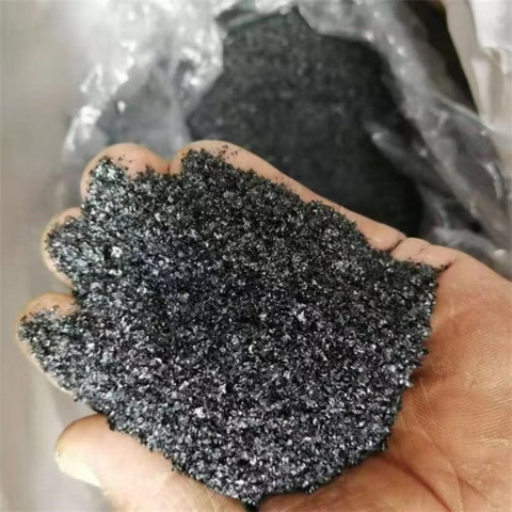
Role in Nutrient Absorption
Enhancing nutrient absorption for my plants is the primary function of potassium humate. The improvement of soil structure and increase in organic matter content as a result of applying potassium humate increases soil aeration and water retention. This allows nutrients to become more available to plant roots and encourages beneficial microbial activity within the soil, making it an improved environment for essential nutrient absorption by plants and, thus, more vigorous growth and overall health. Consequently, I noticed that my plants effectively absorb critical nutrients, prompting better development and general functioning of these green organisms. It also binds with minerals in soils through its chelating properties, which prevents leaching while keeping them available for use by my crops.
Boosting Crop Yield with Potassium Humate
I have learned from experience that using potassium humate extensively improves crop yield by improving the general well-being of my plants. Research from different agricultural sources has shown that increased uptake of nutrients leads to enhanced root development. How stimulating microbial activity can influence this richness becoming more fertile is experienced by me because this creates a robust ecosystem supporting plant growth. The dark coloration due to organic material found in humic ensures moisture is retained, preventing dehydration, especially during dry spells when the crops require hydration the most. By constantly adding potassium humate into my soil management systems, I always manage higher yields and healthier crops, which make it part of my gardening or farming routine.
Using Potassium Humate in Hydroponics
Based on my observations, potassium humate has revolutionized plant growth and nutrient absorption in hydroponics. This means that the availability of nutrients within the nutrient solution is enhanced by this organic amendment, which promotes healthy root development and overall vigor in plants. When I use potassium humate on my farm, they seem to get along very well with what i feed them such as having high rate of growth compared to others. Moreover, this material supports the pH levels in the system and makes them more constant. Consequently, I have been able to experience increased productivity and sturdier plants that point out their importance as a vital part of my hydroponic setup.
How to Make Product Inquiries?
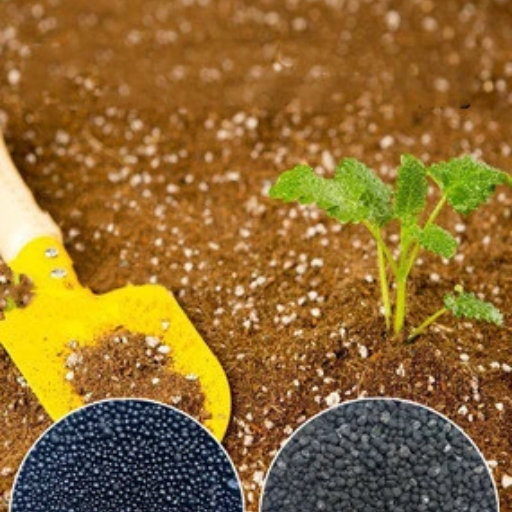
Getting the Right Supplier
In my search for a potassium humate supplier, I am guided by some key considerations. The first thing I do is check their reputation, which means going through the customers’ reviews posted in various gardener forums and communities. In addition, they must provide detailed descriptions of products and certificates so that I can be sure about their sustainability and quality of potassium humate. Besides, when comparing prices and shipping options, I choose a provider that meets my budget but still provides good customer service. With this procedure completed after doing a thorough analysis, I can select the best supplier from many others.
Understanding Pricing and Cart Options
However, when it comes to pricing for potassium humate, I have found several options available depending on the supplier you choose, the packaging size, and whether it is granulated or liquid. According to what I have seen on reputable gardening websites, most have tiered pricing structures where buying more units gets you better prices per unit. This, therefore, necessitates me checking all cart options carefully because shipping charges must also be included, which may be high enough even if rates per single item are not too steep. I need to look out for sellers who break down these costs further into specific components while having an easy checkout process, saving me time during selection.
Customer Support and Assistance
Regarding customer support, I seek suppliers with diverse communication mediums, such as telephone lines, email apps, and live chats, among others, with which they can help me when needed. On top of that, they should furnish me with comprehensive FAQs and resources so that direct interaction becomes unnecessary whenever possible. Therefore, helpfulness was seen as very important because responsive sellers who know about their products make shopping enjoyable since one will be convinced beyond doubt of such a brand. Besides this, they must also outline clear return policies, which give me peace of mind in case some items have to be refunded or exchanged. As such, reliable customer support highly influences my choice of a potassium humate supplier.
Reference sources
Frequently Asked Questions (FAQs)
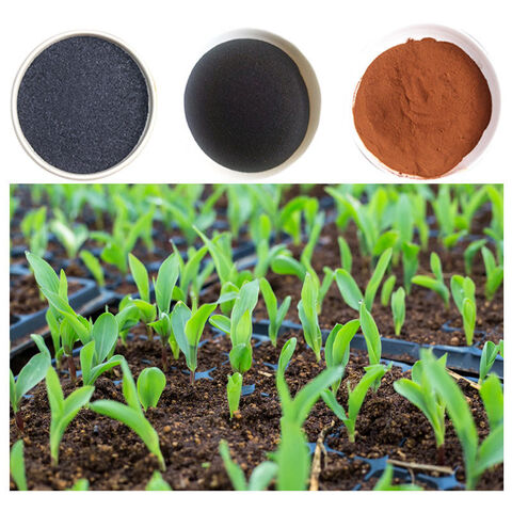
Q: What is potassium humate, a high-organic fertilizer?
A: Potassium humate high organic fertilizer is a bioactive product based on active humates. It is an organic plant growth stimulant and soil conditioner designed to improve soil health and enhance plant growth.
Q: How does potassium humate benefit plant growth?
A: Potassium humate is a highly effective plant growth stimulant and soil conditioner. It enhances root growth, improves nutrient uptake, and fosters more muscular, healthier plant development by providing essential bioactive compounds.
Q: What is the use of foliar in potassium humate?
A: Foliar application of potassium humate allows for direct absorption through the leaves, quickly boosting plant health. This method is particularly beneficial during the seedling stage, promoting rapid development and strengthening the plants.
Q: Can potassium humate be used with nitrogen fertilizer?
A: Yes, potassium humate is compatible with nitrogen fertilizer. They can enhance each other’s effectiveness, leading to improved plant growth and increased yield.
Q: What is liqhumus® liquid 18, and how is it used?
A: Liqhumus® liquid 18 is a liquid form of humic acid potassium that acts as an organic plant growth stimulant. Liquid 18 stimulates plant growth and can be applied directly to the soil or as a foliar spray to provide bioactive nutrients.
Q: What is the recommended dosage for potassium humate fertilizer?
A: The recommended dosage of potassium humate fertilizer varies depending on the crop and soil conditions. Generally, it is advised to follow manufacturer instructions on the product description or consult an agricultural specialist for optimal results.
Q: Is potassium humate an ecological solution for farming?
A: Potassium humate is an ecological and sustainable solution for farming. It enhances soil health without the negative environmental impacts often associated with chemical fertilizers, making it suitable for organic farming practices.
Q: What are the benefits of using liquid humic acid?
A: Liquid humic acid, such as liqhumus® liquid 18, provides a bioactive form of humates that improves soil structure, enhances nutrient availability, and stimulates root growth, leading to healthier and more productive plants.
Q: How does super potassium humate affect soil health?
A: Super potassium humate improves soil health by increasing the availability of potassium and other essential nutrients. It enhances soil structure, increases microbial activity, and promotes better water retention, leading to a healthier growing environment for plants.
Q: What stages of plant development benefit most from potassium humate?
A: Potassium humate is particularly beneficial during the seedling stage and periods of active growth. The bioactive compounds in humates support vigorous root development and robust plant growth, providing a solid foundation for higher yields.







